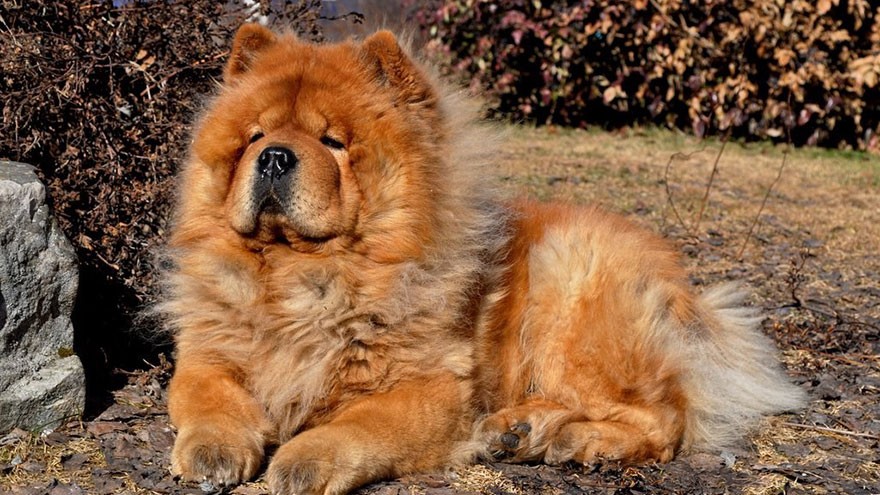Chow Chow Health Guide
This impressive looking dog, a breed that goes back 2,000 years or more, is beautiful because of its lion-like and regal appearance. However, maintaining the health of a Chow Chow or any purebred dog can take definite time and dedication from the owner.
Keep in mind that good Chow Chow pets are a work in progress, which also depends on a consistent diet and good grooming.
Chow Chow Health Guide
The Chow Chow was a hunting and guard dog, and along with its size, making it a generally sturdy dog. This breed can weigh up to 85 pounds so they will require a quality diet that has plenty of food to help it maintain its weight.
The Chow Chow became very popular about 25 to 30 years ago but unfortunately, it was over bred, a process that resulted in some stock with less than top quality traits. Therefore, it is advisable to ask a responsible breeder about the parents and ask to see both whenever possible.
The Chow Chow will do best when given foods that contain many of the ingredients that are natural to its native environment. For instance, fresh vegetables along with rice, soy, wheat, and occasional fish would be excellent. Typically, beef, horsemeat, and lamb are not considered good ingredients for this breed. Although some purebred puppies would do fine with the highest quality commercial food, we recommend you establish a habit of preparing fresh food of the right kind for their new pet.
With a thick coat, the Chow Chow will need to be groomed on a regular basis, almost daily, especially when the dog is young. An adult Chow may be able to go a bit longer without combing and cleaning up but we recommend you not let grooming go too long, as the hair can become tangled and matted. When this occurs, the pet could have problems with skin irritation and other problems associated with dogs bearing a heavy coat.

As a larger breed, Chows can be subject to hip dysplasia, a degenerative disease of the joint that causes both pain and difficulty in movement. Factors such as the amount of exercise and weather can contribute to the degree of dysplasia, but this genetic disease is difficult to detect or predict. Some reports state that almost half of all Chow puppies end up with or are born with hip dysplasia, but these same reports emphasize that the percentage would be much, much less, if responsible breeders would examine and x-ray their young stock before offering them to new owners.
The Chow Chow can also suffer from an eye irritation called entropion caused by an eyelid abnormality in which the eyelid turns inward. The resulting irritation is known to cause numerous problems. The good news is that this eye condition can be corrected by surgery. In addition, you should look at the puppy’s eyes before purchase, making sure they are clear and bright.
Chow Chow owners should also be aware of some skin irritations and other allergy problems that the breed is prone to, such as dermatitis. In addition, the Chow Chow has a natural low tolerance to anesthesia, so any surgery that might be necessary later can be a problem.
The primary reason is that this breed has a small heart in comparison to their size and weight. Finally, the natural straightness of their hind legs causes them to be prone to ligament problems that might be even more of a problem, as they get older and heavier.
You Might Also Like :: Chow Chow Breed Information

